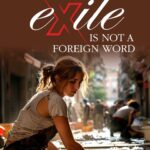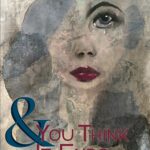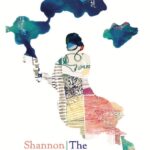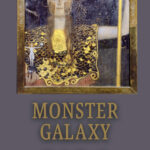Curated by Melissa Joplin Higley
 Pramila Venkateswaran, Exile is not a Foreign Word, Copper Coin, November 2024, poetry
Pramila Venkateswaran, Exile is not a Foreign Word, Copper Coin, November 2024, poetry
Exile is not a Foreign Word addresses the kinds of barriers we experience in our lives that affect us for generations. Venkateswaran documents the different political borders she has experienced, from seeing the effects of Partition on India and Pakistan, to the exile of women within families and within one’s own country. The consequences of wall-building to divide gender, caste, race, and class are violent in their enforcement, and traumatize us for generations. These poems also explore the resilience of human beings and the ways we try to surmount walls separating us. Women help other women, women use art to transform lives, and survivors find ways to thrive. From love transcending stubborn walls, to communal survival, to individual acts of courage to brave the toughest barbed wire fence, we witness examples of the possibility of tearing down borders keeping us apart.
 Amy Small-McKinney, & You Think It Ends, Glass Lyre Press, March 2025, poetry
Amy Small-McKinney, & You Think It Ends, Glass Lyre Press, March 2025, poetry
& You Think It Ends begins with the quote from a Linda Hogan poem, “When the Body”: “When the body wishes to speak, she will.” & You Think It Ends moves from girlhood and violence, including rape and illegal abortions, both personal and worldwide, to motherhood, the discovery and embracing of ancestors, and finally love and acceptance of an aging self and body. The poet’s story and the stories of other women are interwoven and speak to these very difficult times we live in. By the end of the book, the poet’s body speaks to her, and she listens. The poet also speaks to her adult daughter, finally, sharing her story.
 Shannon K. Winston, The Worry Dolls, Glass Lyre Press, April 2025, poetry
Shannon K. Winston, The Worry Dolls, Glass Lyre Press, April 2025, poetry
The Worry Dolls traces intergenerational experiences of anxiety and asks: how can we move past inherited worries and obsessions, particularly those passed down through an anxious mother? Questions of gender, especially as they relate to the female body, are central to this collection, which wrestles with pressures to conform. Through the figures of a mother, daughter, and grandmother, the poems explore how anxiety is internalized, resisted, and rewritten. Formally varied, the collection searches for ways to disrupt old patterns and reimagine the future.
 Cindy Veach, Monster Galaxy, MoonPath Press, April 2025, poetry
Cindy Veach, Monster Galaxy, MoonPath Press, April 2025, poetry
Monster Galaxy is a poetry collection about loss and self-discovery that braids the speaker’s personal grief with what it means to be a woman, mother, daughter against a backdrop of female tropes. Within this construct, the speaker re-examines her lived experiences tracing the origin of the monsters that exist inside her selfhood to the delta between what society thinks she should be and who she is. Through the universal lens of loss Monster Galaxy takes the reader on a journey of discovery, acceptance and new life.
 Chelsea Fanning, To Love a Fierceness so Bright, Nymeria Publishing, August 2025, poetry
Chelsea Fanning, To Love a Fierceness so Bright, Nymeria Publishing, August 2025, poetry
Chelsea Fanning’s debut poetry book, To Love a Fierceness so Bright, is a fiercely nuanced portrait of womanhood. Full of witchcraft, grit, ferocity, and tenderness, Fanning dissects with piercing precision the power names hold – both those that we take up willingly, and those thrust upon us. Here you will find the virgin and the slut, the hysterical woman and the monstrous female. Equal parts unsettling and edifying, this fevered collection invites us to reclaim the narratives that seek to constrain us and to “re-form them from all our bones.”
 Tamara Jong, Worldly Girls, Book*hug Press, September 2025, creative nonfiction (memoir)
Tamara Jong, Worldly Girls, Book*hug Press, September 2025, creative nonfiction (memoir)
Tamara Jong’s debut memoir is a moving portrait of trauma, addiction, grief, and forgiveness. In sparse yet searing prose, Jong documents the tragic history of her fractured family and her fraught relationship with her strict Jehovah’s Witness religion. In doing so, she shines a light into the dark corners of memory that have haunted her well into adulthood. With clear-eyed honesty, Jong collects the fragments of her unstable and unconventional childhood with her busy schedule of Jehovah’s Witness meetings, Bible study, and door-to-door ministering. She also details her emotionally distant father and alcoholic mother’s tumultuous marriage, her indoctrination into and later rejection of her faith, her deep yearnings to become a mother after the loss of her own, and her struggles with mental health. In a story that traverses a wide range of potent themes—alcoholism, estrangement, grief, depression, infertility—the ultimate message becomes one of hope as Jong finds her own path to healing and belonging.
